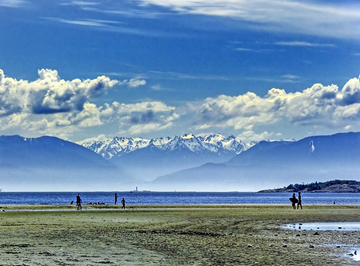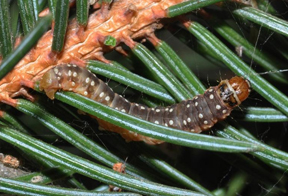Information Forestry, December 2007—
A century-long ocean-warming trend may explain the rarity of western spruce budworm outbreaks on southern Vancouver Island since the 1930s, according to a study by Canadian Forest Service scientists Alan Thomson and Ross Benton.
Mild winter temperatures, linked to a rise in sea temperature, have de-synchronized budworm–host interactions in the region: budworm larvae now emerge earlier in the year, while timing of bud flush of Douglas-fir, the defoliator’s preferred host, remains unchanged. The trees do not respond to the early warming because their photoperiod requirements are already met by that time.

Scientists compared more than 80 years of sea-surface temperatures from Race Rocks Lighthouse (seen in distance) near the southern tip of Vancouver Island with historic air temperatures.
More than eight decades of sea-surface temperatures, collected at the Race Rocks Lighthouse near the southern tip of Vancouver Island, were compared with corresponding historic Environment Canada air temperatures. Mean sea surface temperatures and the mean maximum and minimum air temperatures from January to March correlated, with all temperatures from this region increasing over the period studied.
The good news does not extend beyond the south island, however: changing climate is believed to be contributing to a widespread, 30-year budworm infestation in the interior, far from the influence of sea-surface temperatures.
© Natural Resources Canada 2007



You must be logged in to leave a reply.